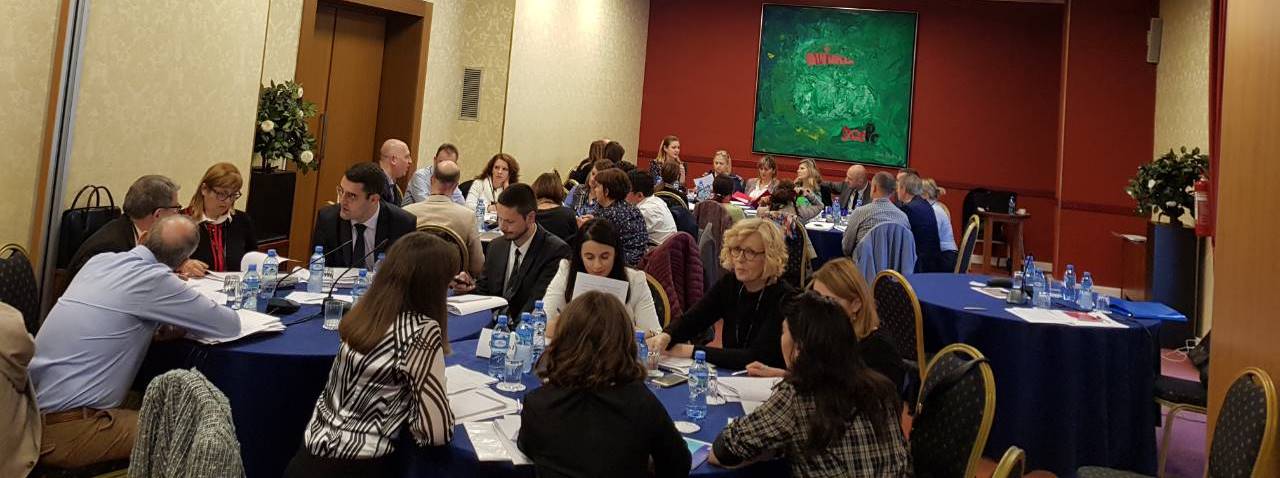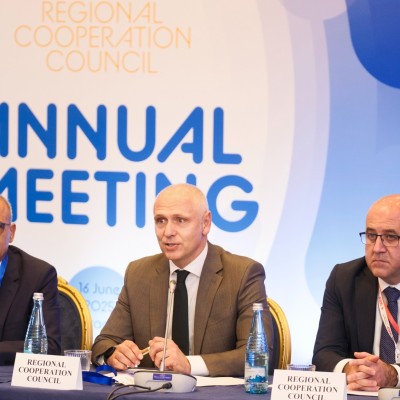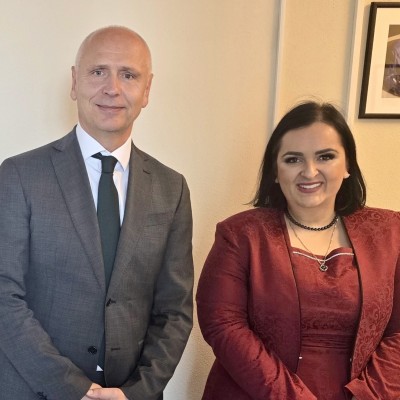RCC organizes training of teams for negotiations on mutual recognition of professional qualifications in the Western Balkans
14 November 2018

RCC-organised training session for the negotiations teams for the negotiations on the Agreement on the Mutual Recognition of Professional Qualifications of Doctors of Medicine, Dentists, Architects and Civil Engineers between the 6 Western Balkan economies (WB6), held in Tirana, 13-14 November 2018 (Photo: RCC)
Tirana – The Regional Cooperation Council (RCC) concluded a two-day training session for the negotiations teams who will conduct the negotiations on the Agreement on the Mutual Recognition of Professional Qualifications of Doctors of Medicine, Dentists, Architects and Civil Engineers between the 6 Western Balkan economies (WB6) in Tirana today. The training was the first step in the negotiations process, focused on preparing the negotiation teams for the process itself, working towards finalisation of the Mutual Recognition Agreement (MRA) by the Western Balkans’ Summit in Poland the following July.
During the training, the EU experts presented the concept of the professional qualification and the system of recognition of professional qualifications as outlined in the EU Directive 2005/36/EC, as well as its implementation in Switzerland and Austria, underlying logic of the system and the Directive’s key concepts e.g. permanent vs. temporary establishment; automatic vs. general system of recognition; minimum training conditions for the four selected professions; etc.
The participants presented their current national practices of recognition of professional qualifications as well as the current education and training for their profession. They assessed the extent to which the current education and training correspond with the minimum training conditions outlined in the EU Directive 2005/36/EC.
Mimika Dobroshi, RCC’s Expert on Smart Growth, presented the concept for the Database on Regulated Professions in the WB6, outlining the roles and responsibilities and a timeline for the establishment of the Database for feedback and discussion among the participants.
“Removing obstacles to mobility of professionals, thus reaching the Multi-Annual Action Plan on Regional Economic Area (MAP REA) goal to allow unhindered movement of doctors of medicine, dentists, architects and civil engineers in the region would create real opportunities to keep the talent within the region. Furthermore, the Draft Agreement on Mutual Recognition of Professional Qualifications, being based on the EU Directive 2005/36/EC on Recognition of Professional Qualifications, would greatly contribute to preparations for the EU accession of the WB6 economies, “said senior RCC Expert on Skills and Mobility, Vanja Ivosevic, who led the training.
The 1st meeting of the lead negotiators was held on 8th of October in Brussels, when negotiation teams were initially introduced and the negotiation dynamics plan was confirmed. The training held in Tirana in the past two days was the first activity implemented in accordance with the agreed plan.
The expected outcome of the negotiations is to conclude a Mutual Recognition Agreement, which would establish common rules for recognition of professional qualifications for the applicants holding a professional qualification obtained in one of the Western Balkan economies, enabling them access to and the pursuit of their profession in another economy.
Negotiations and expected Agreement on the Mutual Recognition of Professional Qualifications is part of the Multi-Annual Action Plan on Regional Economic Area (MAP REA) agreed by the region's Prime Ministers in Trieste last year.
Presentation by RCC Expert on Skills and Mobility, Mimika Dobroshi
PRESENTATIONS BY PARTICIPANTS
- Introduction of the Concept of Professional Qualifications by Frédéric Berthoud
- System of recognition of professional qualifications in EU by Frédéric Berthoud
- EU-System of recognition of professional qualifications by Irene Linke
- System of recognition of professional qualifications with a specific view on dentists by Jasminka Polic
- System of recognition of professional qualifications with a specific view on Architects and Civil Engineers by Frédéric Berthoud



